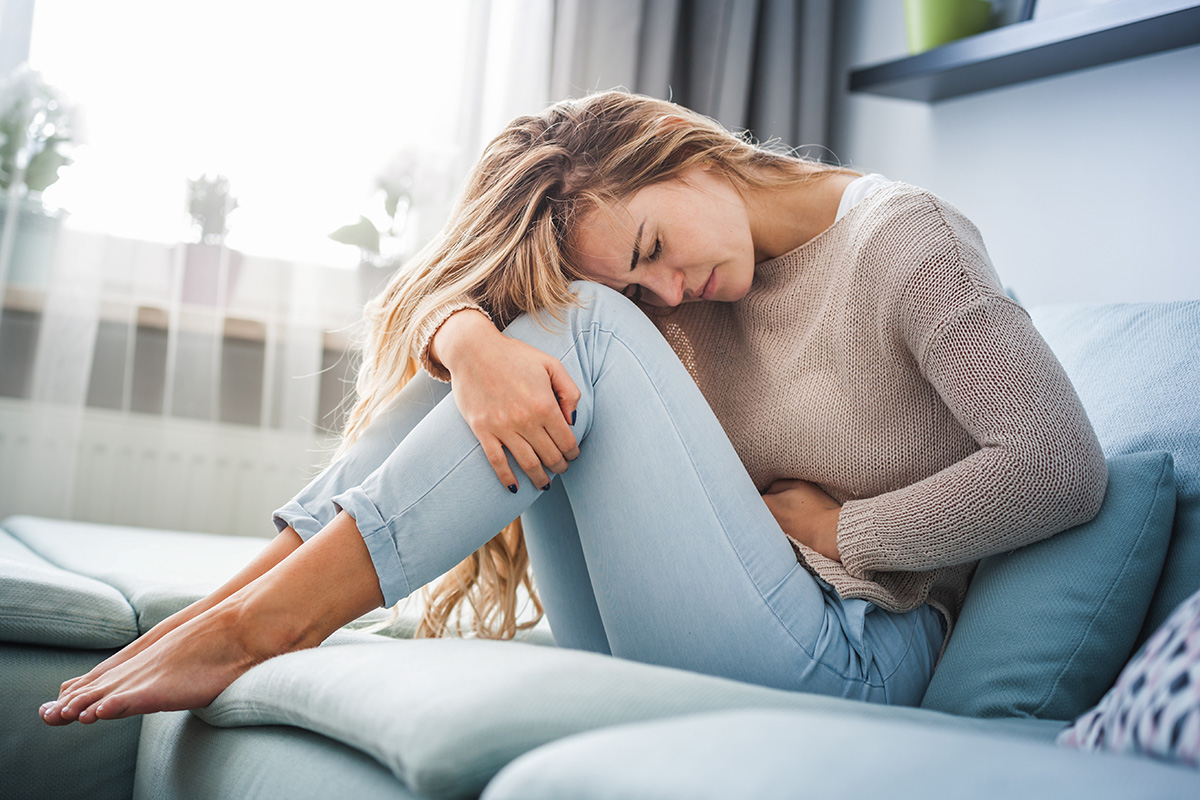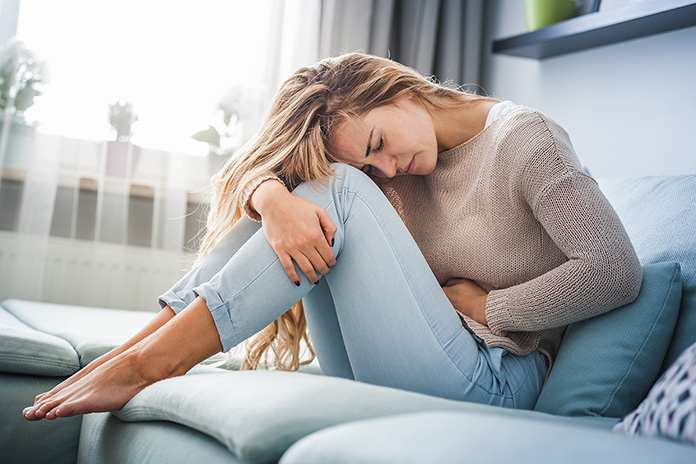
PMS, or premenstrual syndrome, affects a lot of women—almost 75% of those who are currently having menstrual cycles. Many women don’t talk about it, some think everyone has it, and most just assume PMS is just something that women have to put up with.
Interestingly, PMS is a syndrome, which means that it can have a variety of symptoms, but not every woman who has PMS will have every symptom. The reality is that with over 150 different symptoms, PMS can manifest in many different ways from woman to woman. The single common factor is that PMS symptoms occur during the 7 to 10 days before the onset of your period.
Because there are so many ways that PMS can occur, scientists have broken the symptoms down into broad groupings. It’s possible to have PMS symptoms from a single category or several. The groupings are:
- PMS A These are symptoms associated with anxiety, irritability and mood swings.
- PMS C The C stands for cravings and is related to your blood sugar and food cravings. If you’re craving sweets, carbs or any other foods, for that matter, your symptoms would fall into this category. Furthermore, PMS C is associated with high, low or swings in your blood sugar, fatigue, feeling shaky or light-headed and heart palpitations.
- PMS D In this instance, the D is for depression. This category includes feeling sad, depressed or crying more than usual.
- PMS H This category includes symptoms related to hydration or poor water metabolism—most notably overhydration in the form of retaining water, edema, swelling and puffiness.
- PMS P The P is for pain and cramping. While many women experience pain and cramping when their period begins, some have these symptoms days before their period starts.
- PMDD This describes premenstrual dysmorphic disorder and is associated with severe symptoms, such as mood changes that affect your work and quality of life, and severe feelings of sadness, anger and anxiety.
The culprit behind PMS is your hormones. They go through a cycle each month that includes wide swings and changes. Estrogen and progesterone are released by your ovaries every cycle in changing proportions. Scientists believe that one cause of PMS is an imbalance between these hormones, specifically when levels of estrogen are elevated relative to progesterone.
Fortunately, many of the underlying sources of PMS are associated with issues over which you have some amount of control. For example, elevated estrogen can be caused by your dietary choices, high levels of stress and exposure to environmental chemicals that are hormone disruptors. Furthermore, the status of your digestion may also be a player, as it helps eliminate extra estrogen through your digestive organs and liver. That said, there are some conditions, such as PCOS (polycystic ovarian syndrome), perimenopause and endometriosis that affect PMS which can’t be controlled.
Chinese Medicine Can Help
Some women who struggle with PMS have turned to acupuncture for relief. Research on its effectiveness suggests that this is a good idea. Some studies have concluded that acupuncture can help with both the physical and psychological symptoms of PMS, especially those related to mood. In addition, acupuncture and Chinese medicine is a safe, natural approach focused on not only treating your symptoms, but also uncovering and treating the source of those symptoms. This means that if you were experiencing premenstrual pain and cramping, your treatment strategy would be different than if you were seeking acupuncture to relieve severe mood swings.
Acupuncture can help to relieve PMS symptoms in the following ways:
- It has been well-documented that acupuncture is effective for stress, anxiety and depression. That’s because acupuncture treatments increase the circulation of certain feel-good neurotransmitters that can help improve mood, reduce stress and alleviate anxiety.
- Acupuncture can help balance your hormones. It does this by helping to regulate the hypothalamic pituitary axis in your brain which controls and adjusts all of your body’s hormones. Researchers have discovered that acupuncture can play a positive role in regulating reproductive function and your menstrual cycle through its impact on hormones.
- Your diet can play a large role in hormonal balance, and your treatment may include dietary therapy, in which your practitioner can assess and suggest food-related strategies to help. This may involve reducing sugary foods or those high in pesticides, toxins or food additives that can disrupt hormonal balance, as well as working to control PMS-related food cravings.
- Chinese herbs can also help in a number of ways. Herbs can be used to reduce stress, alleviate mood swings, promote better digestion, reduce water retention and help to balance your hormones. An herbal formula helps to enhance and prolong the effects of acupuncture, but they can also be used as a stand-alone treatment.
PMS isn’t something that you just have to live with every month. Help is available in the form of acupuncture and Chinese medicine. Your practitioner can work with you to get to the root of your symptoms and treat them in a safe, effective and drug-free way. For more information on treating PMS, please give our clinic a call.

Cindy Chamberlain is an acupuncturist in Overland Park, KS and the founder of Eastern Healing Solutions, LLC. She is licensed in Kansas and Missouri and has been practicing traditional Chinese medicine since 1996.


